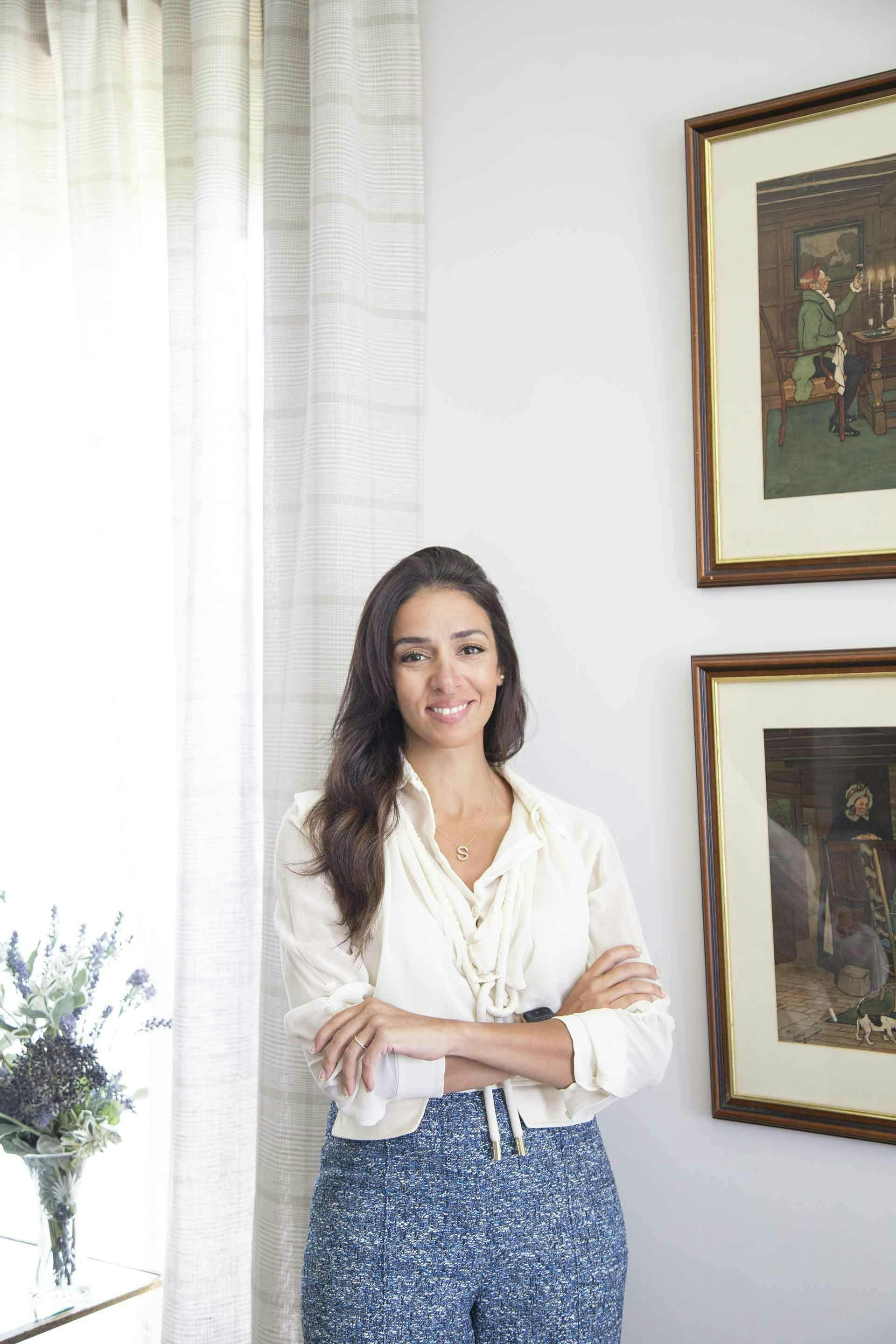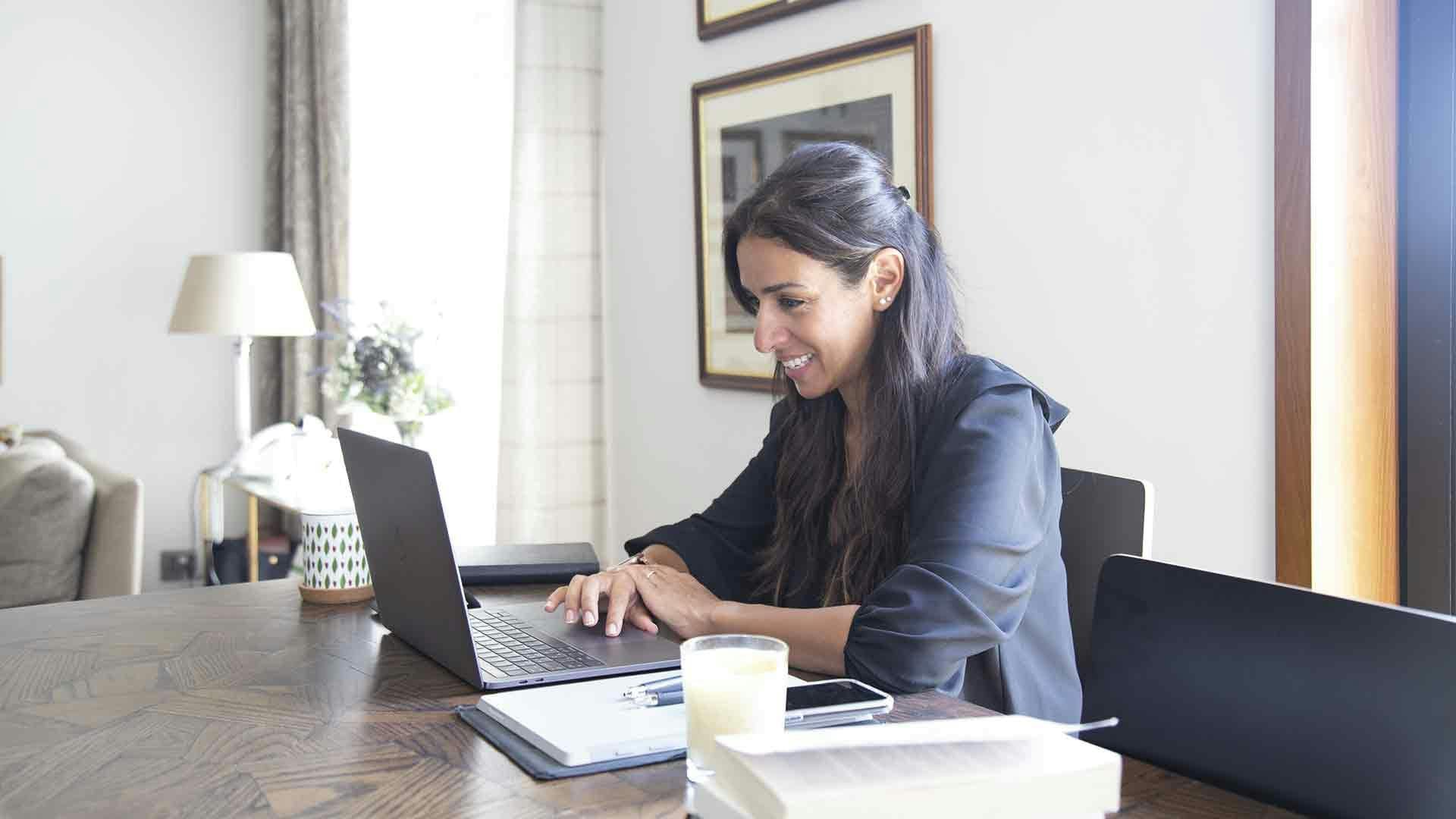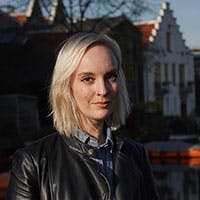How Sarah El Battouty established ECOnsult, Egypt’s first environmental design consultancy
arah El Battouty comes from a family of architects – she’s the fourth generation to make it a career. Alongside her architectural training, she studied climate policy with a focus on project management, but throughout her education, she questioned what is celebrated about architecture and saw a lack of consideration for the social impact.
After practicing traditional architecture for several years and studying environmental design, she decided to start something of her own, launching ECOnsult in 2013.
ECOnsult is an environmentally cognizant architecture consulting firm that helps companies pursue their green business goals while challenging how the design and architecture industries contribute to climate change. It is working to develop a user-friendly technology to assist the building sector in providing low-income housing cooling solutions.
Sarah shares her experiences of founding ECOnsult and the unique challenges of launching the environmental and design consultancy in Egypt during the Arab Spring.
Egypt has a young population with demographics that cater to the flourishing of startups and a green economy.
Did you have any entrepreneurial experience when you decided to create your own company?
When I started working in Egypt, in my spare time I worked as a freelance consultant for solar energy companies and NGOs, but I wasn’t thinking about starting something on my own. In my architecture practice, I had worked with firms that addressed community issues, but there was still something missing.
I had been working for about seven years and I had enough experience to know how to run a business. I did something essential: whenever I was working with a company, especially the architecture firms, I would ask to sit in on the business meetings to listen and learn how to do the business of architecture. People wondered why I would be interested in negotiations on prices and laws and contracts. I wanted to know how the industry worked and why they were not doing more for the community.
When I decided to start something on my own, I had a partner, Andrea Bergonzini, who was also passionate about environmental design, and we both had the idea that what we celebrate as good architecture should have, as part of its deliverables, these social and environmental issues that we felt were missing.
The first project that we worked on was a small cafeteria for a church in Italy made entirely out of discarded refrigerator casings. It looked very modern and strange to have an entirely recycled building look so slick. That was the platform for our company: buildings that meet standards, that are robust, with good-looking architecture and that are surprising in their design. What we wanted to do was merge conventional architecture with green architecture.
We started the company in 2011, during the Arab Spring. That was a challenging time for us. We went from one industry to another but engineers told us we were not ordinary architects, so they could not list our company, and the Ministry of Environment also didn’t have any architectural companies in their listing.
In the end, we established the first environmental and design consultancy in Egypt. It took a year after the Arab Spring to register the company, and we officially launched in 2013. That’s why our first project was in Europe – because for a year and a half there was complete economic paralysis in Egypt. This was a very good time for us to think, to study the market and to understand what challenges we had. We were lucky that we had this time.
[You may also like: Understanding Egypt’s startup ecosystem]

Sarah El Battouty, ECOnsult founder. Photo: Wafaa Samir
What were some of your early struggles or mistakes?
One of the earliest struggles that we had was support from our families, who were successful business owners in their own rights and who were wondering why we’d go off on our own and not integrate our ideas with their projects. Eventually, we convinced them that we wanted to try and were willing to take the risk.
Financing was a huge challenge for us at the beginning because the country had just come out of an economic struggle, there was a lot of instability and we were entering a field no one knew anything about. We were predicted to last only a year and a half.
So we took matters into our own hands. We came up with the name and logo, and we designed the website ourselves. I sold my car to finance the company. I managed to find a small rental place where we worked, just two people, from our laptops.
My highest cost was flying my partner in from where he lived in China. At the time, China was beginning to look into its green industry, so my partner suggested that instead of flying and contributing to carbon emissions, we rent a hot desk and have an address in China. We could use projects in China to bring in projects for the Cairo office, and vice versa. Another reason we did this was that it was difficult to hire people in Egypt who knew environmental design. We needed to rely on the know-how of people already in the industry and to hire people who would stay with us.
There was also the challenge of dealing with the startup culture in Egypt at that time. It was very different from what we were trying to do with ECOnsult. We had very big dreams, and we didn’t want to let them go. This is quite different from having someone come in with the vision of selling the company in a few years.
It sounds crazy, as a founder, to think you’re going to be like Mark Zuckerberg or Elon Musk, but we are trying to change how people behave. From day one, this was one of the biggest aspects of making the team. It filters out those who just want to come in and work for a startup. The majority of the people at ECOnsult are people we hired when we decided to scale up the team beyond two people.
How did you go about building your team?
In the beginning, there was a challenge because we got mistaken for an NGO a lot. We did a lot of the marketing on our own because we didn't have any money. Sometimes we don't act like we are founders; we act like activists. People look at our social media and think that we are climate activists rather than climate architects.
We also made mistakes at the beginning by hiring interns – when you have a small team, you need people with a bit of experience. It’s a large investment to have interns for half the team. It takes time and a lot of management, whereas in the architecture practice you don’t have time; you have a contract and you need to stick to it.
Eventually, our hiring became more and more focused. We are on the advisory board of the American University in Cairo School of Business, and we are a listed company with the American Chamber of Commerce. These affiliations show who we are and how serious we are about our business, and they improve the applicants coming to us.
We made all the mistakes that you can imagine in the beginning, but one of the good things that we did was remind ourselves of why we're trying to set up this business, to not pour in too much money, and to not overpromise anything, because we want ECOnsult to become an industry influencer and create a new culture.
How do you build your team culture?
We have a culture of delivering quality and being very honest with the client. A lot of people are skeptical of what we do because the green movement remains quite ambiguous. There have been other companies that have promoted it in the wrong way, with health and safety issues not being met.
In our case, we have one hundred percent success on certified green buildings. Our competitors right now are two multinationals: one is an architecture and engineering firm, the other one is a big developer. Our team of twenty has been propelled into this arena of giants.
As a founder, it takes its toll because you have to relay this passion and patience. You have to remind the team that what we're trying to do is a lot bigger than what we are.
Is there something unique about Cairo as an environment for impact-focused startups that makes you feel at home?
Absolutely. Cairo is great. Egypt has a young population with demographics that cater to the flourishing of startups and a green economy. The market is diversifying, creating opportunities for new businesses to launch. But the amount of startup-supportive systems in Egypt compared to other countries around us is minimal, which is an indicator that creativity and problem solving are assets because you have to get around the barriers – like when we had problems registering the company here, so we opened up in China first.
I have another startup that I'm running now, ten years after first working on ECOnsult. The experience is very different. This one, MuBun, specializes in making furniture out of scrap waste. I get to see the difference between this and ECOnsult, and it has become a lot easier. The interest from investors in the green economy is a lot higher now, and I feel that investors have become more educated. I have also become more educated in who to consult at the beginning, and because we have our own capital, we can hire more mentors than before.
Don’t let challenges and failures get to you – you're going to be a student until you are one hundred years old.
What advice would you give to people who are looking to start an impact-related business?
Don't let successes get in the way of what you're trying to do. If you want to work in the field of impact, you need to assess whether you are making an impact or not.
Remind yourself what you set out to do for your clients and your beneficiaries – they are invaluable to you. Don’t let challenges and failures get to you – you're going to be a student until you are one hundred years old.
[You may also like: How young entrepreneurs in Cairo are driving the local startup scene]
A version of this interview is featured in Startup Guide Egypt. Order your copy now for more exclusive interviews and inspiring insights.
Written by Rachel Velebny.
Repackaged by Hazel Boydell.

